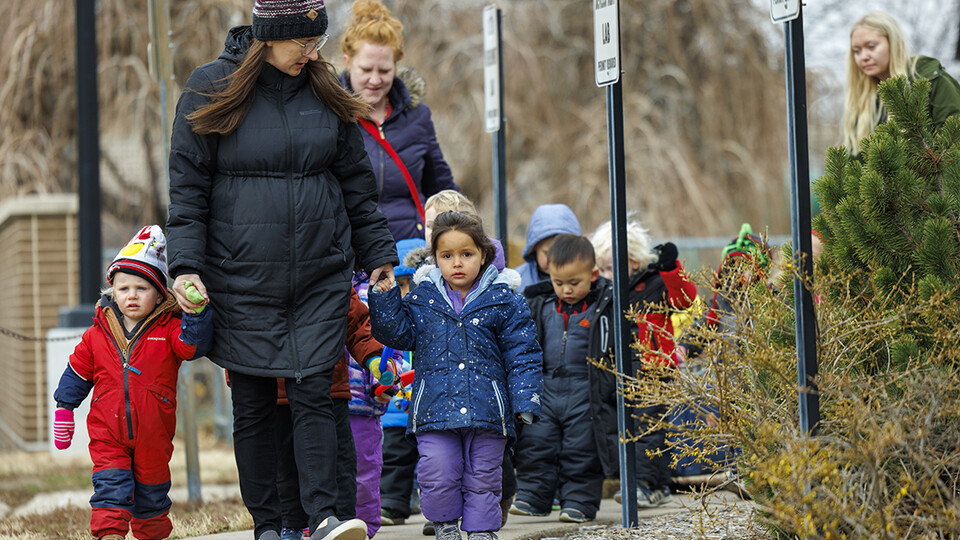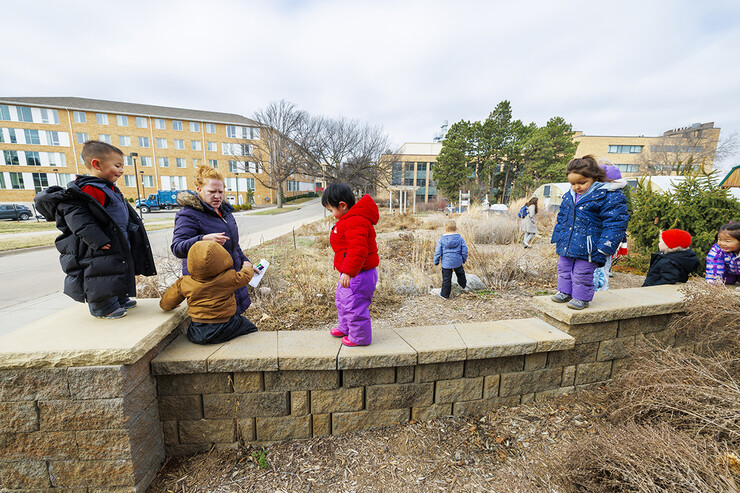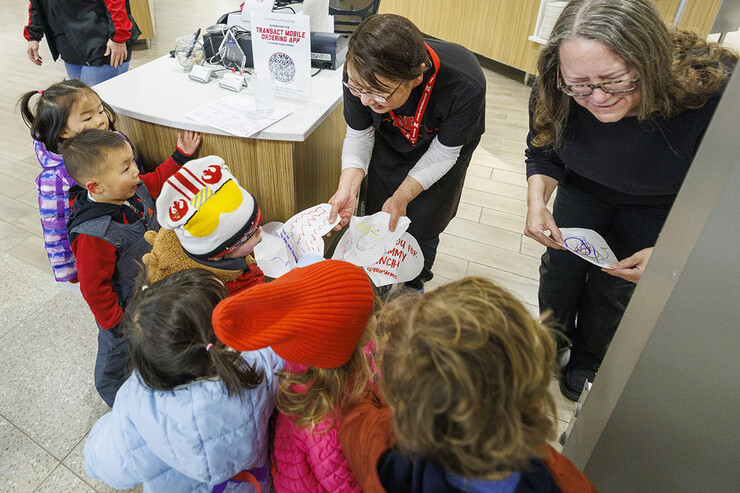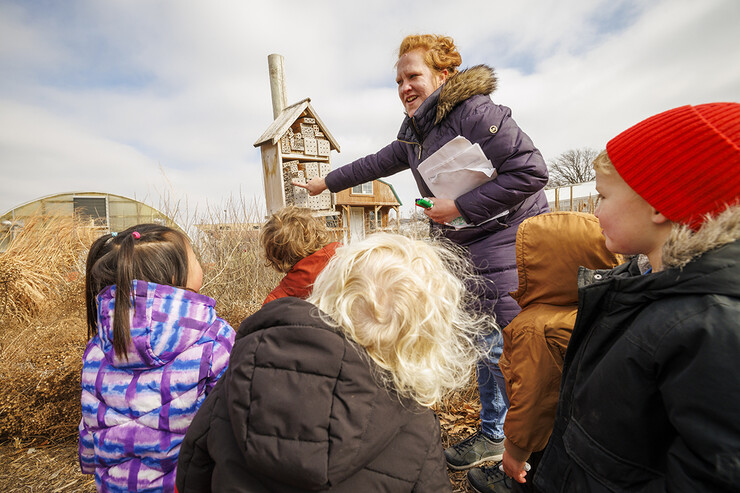
Partnerships integrate Staples lab children into campus community
18 Mar 2024 By Kristina Jackson, University Communication and Marketing
For children at the Ruth Staples Child Development Lab, the University of Nebraska–Lincoln campuses become their playground.
Teachers at the school frequently take the children to visit different corners of campus to explore and learn, and have developed partnerships throughout the university to develop programming for the school, which serves children ages 18 months to 5 years. Jennifer Leeper Miller, director of the Ruth Staples Child Development Lab School, said collaborating with other departments and entities opens up more learning opportunities to children. There are currently 36 students enrolled at the Staples lab, which is open to the public.
“It helps us carry out our mission,” Leeper Miller said. “Finding resources in your community helps you become a better teacher. It identifies ways for you to increase your quality of teaching when you reach out to experts because it creates that network.”
RSCDL has a nearly 100-year history on East Campus as a center for teaching, research, teacher training, childcare and as a parent resource. Children who attend the school visit many sites across both East and City campuses, including the Larsen Tractor Museum, Backyard Farmer Garden, Entomology Hall, the International Quilt Museum, greenhouses, Morrill Hall, Sheldon Art Museum and more. They usually visit a field site two or three times a week during the winter and more during the warmer months.
On a recent chilly Friday morning, children in the Bluestem classroom, which serves children 18 months to 3 years old, delivered “gratitude hearts” to staff at the East Campus Dining Center and stopped to look through the fence at construction outside the East Union on their way to explore the Backyard Farmer Garden.
Children are encouraged to identify what they are curious about. They then bring those interests into the classroom and document what they saw.
“They come back to the classroom and use materials to help them process and think through what they’ve experienced, whether that’s through writing, painting, clay, or other representational tools,” Leeper Miller said.
Mollie von Kampen, assistant director of the RSCDL, said the children often come up with their own names for their favorite places on campus — Maxwell Arboretum is “the secret garden.” If she runs into former students even 10 years out of the school, the trips are some of their fondest memories.
“They still have those memories of visiting Keim Hall, visiting the prairie grass,” von Kampen said. “I think those really stay with children and become a part of who they are.”
Leeper Miller said the visits help the children gain a sense of community and learn about the world through their own eyes. Being out on campus also encourages interpersonal skills also, Leeper Miller said, as there are always people who will stop and talk to the group or wave hello.
“They are the future of our community, so they need to be experiencing and seeing our world happen firsthand,” Leeper Miller said. “We have to advocate for the child to be in the community, asking the questions, and having the wonder and awe of what’s happening.”
RSCDL is accredited by the National Association for the Education of Young Children. Looking forward to the future, RSCDL is fundraising for a new facility to make a stronger impact in the field of early childhood education for pre-service teachers, children and families. Learn more about the Ruth Staples Child Development Lab School at cehs.unl.edu/ruthstaplescdl/.
College of Education and Human Sciences
Child, Youth and Family Studies
Thriving Young Children


